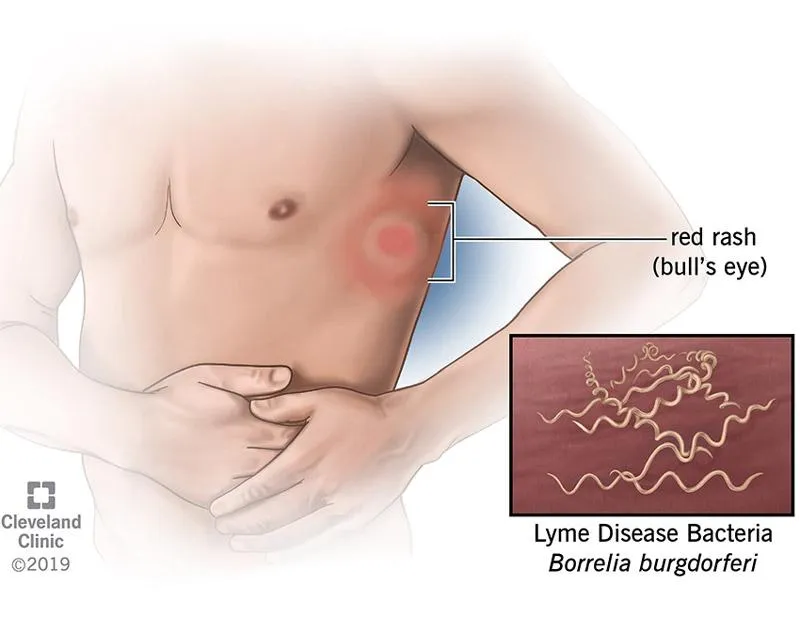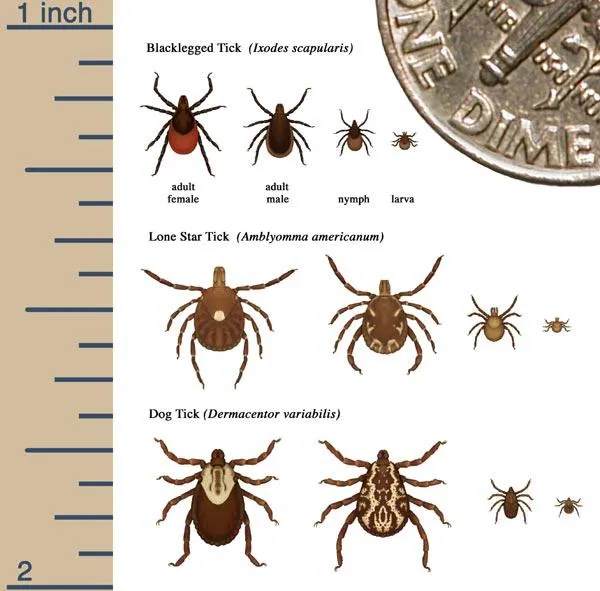
Lyme Disease Doctor Johnson City TN
What is Lyme Disease?
To understand this disease better, it will be important that we trace its causes, treatment and prevention. By the way what is this disease? Lyme disease is caused by the bacterium Borrelia burgdorferi and is transmitted to humans through the bite of infected blacklegged ticks.


To understand this disease better, it will be important that we trace its causes, treatment and prevention. By the way what is this disease? Lyme disease is caused by the bacterium Borrelia burgdorferi and is transmitted to humans through the bite of infected blacklegged ticks.
Typical symptoms include fever, headache, fatigue, and a characteristic skin rash called erythema migrans. If left untreated, infection can spread to joints, the heart, and the nervous system. Lyme disease is diagnosed based on symptoms, physical findings (e.g., rash), and the possibility of exposure to infected ticks.
Scientific laboratory testing is helpful if used correctly and performed with validated methods. Most cases of Lyme disease can be treated successfully with a few weeks of antibiotics. Steps to prevent Lyme disease include using insect repellent, removing ticks promptly, applying pesticides, and reducing tick habitat. The ticks that transmit Lyme disease can occasionally transmit other tick-borne diseases as well.
Natural Treatment of Lyme Disease
It is a common misconception that Lyme disease is primarily an “East Coast” problem. Within the last 10 years, however, the ticks that are known to carry Lyme disease have been found in all 50 states in the US and in other countries around the globe. We are now facing a nationwide epidemic of Lyme disease.Uncovering some of the myths about Lyme disease is an important step in both prevention and treatment. Efforts are being made to spreading awareness and education about this illness. One of the biggest challenges with Lyme disease is that it can be difficult to get a confirmed diagnosis without a known tick bite or the appearance of the classic “bull’s eye” rash. There are many different skin rashes that are associated with Lyme disease, however, and some are easily mistaken for skin infections or other insect bites.It is important not to make assumptions that you don’t have Lyme disease if you don’t have a rash. Some of the symptoms associated with this infection include fatigue, poor memory and concentration, irritability, anxiety or depression, muscle and joint aches and pains, palpitations, headaches, insomnia, and numbness and tingling.

Lyme disease is now commonly referred to as “the great imitator” because the similarities of symptoms with other illnesses. This can be frustrating for patients in search of answers to explain how they are feeling. Getting a good clinical evaluation of symptoms by a physician is crucial in diagnosing Lyme disease.The conventional treatment of Lyme disease includes antibiotics in the early stages of infection. At the later stages, it may become more complicated and difficult to treat as multiple systems are often involved and immunity is suppressed. A holistic approach to treatment is very effective in restoring the body back to health by targeting the multiple infections associated with Lyme and simultaneously strengthening the immune system.The natural approach incorporates a unique variety of different modalities to treat infection while supporting the immune system and decreasing symptoms. Many herbal protocols including Chinese herbs have proven effective clinically in the treatment of Lyme disease. Acupuncture can be used to stimulate circulation and decrease pain. Adequate nutrition and a good detox protocol can minimize the symptoms that occur as a result of “die-off” of the infection.
Symptoms of Lyme Disease
First recognized in 1975 when a group of children living near Lyme, Connecticut became ill with arthritis, Lyme disease has spread to nearly all 50 states and affects approximately 16,000 individuals each year. Within a few days to several weeks after being bitten by an infected tick, 80% of people develop a red, circular rash around the bite according to experts at the Mayo Clinic. The center of the rash may clear as it grows giving the appearance of a bulls-eye pattern. The rash may feel warm, but it is usually not painful or itchy. Other symptoms in the early stage of Lyme disease may include the following:
Fatigue
Fever
Chills
Joint pain
Muscle aches
Headaches
Stiff necks
Swollen lymph nodes
Later stages of Lyme disease can become very serious resulting in debilitating and chronic symptoms including:
Arthritis in the arms and legs
Memory loss
Numbness in hands, arms, legs, and feet
Lyme disease is usually treated with antibiotics taken for three to four weeks. Antibiotics are usually taken by mouth, but in severe or advanced cases of Lyme disease, they may be given by injection. If treatment begins at the early stage of the disease, a complete cure is likely and any delay, recovery may take longer and symptoms may last for months or even years which is why seeking professional redress with doctor Dalal Akoury is very important for you.

Lyme disease is caused by Borrelia burgdorferi, which is carried by Ixodes scapularis or Ixodes pacificus ticks. These ticks are primarily found in the northeast, northwest, and upper Midwest of the United State. However, such ticks are also found globally in bushy areas and their effects are the same for all patients. We can avoid Lyme disease by staying away from tick-infested areas. If this is not possible for whatever reason, outdoor enthusiasts should wear long pants tucked into their socks and a long-sleeved shirt tucked into their pants. In the event a tick bites you, it should be removed carefully without delay by inserting tweezers between the tick and the skin and lifting gently. Normally such tricks will have to be attached to the skin for at least 48 hours to transmit the disease. When neurologic symptoms occur, they are probably triggered by the direct action of the bacterium and an immunologic reaction. People who live with Lyme disease face a daily battle marked by fatigue and pain. Ordinary tasks can become challenging and stressful leading some individuals resulting to self-medication with drugs and alcohol which are very addictive.
Request Your Appointment Today!
To request your appointment, please call (423) 430-6170 or contact us online today!


Our Location
AWAREmed Health and Wellness Resource Center
1604 Lamons Lane, Suite 202
Johnson City, TN 37604
Phone: (423) 430-6170
Get Directions
Get More Info

There Is Always Hope—We’re Here for You!
Let’s Talk
We understand that you may have many concerns right now.
Our admissions counselors are happy to help you find the answers you need.
Get a FREE personalized treatment plan today.
What To Expect
1
Share Your Story
Fill out our secure and confidential form so we can better understand your needs before our conversation.
– Takes less than 5 minutes to complete.
2
Connect With Our Team
One of our experienced patient care specialists will reach out to answer your questions, offer guidance, and discuss how AWAREmed’s holistic treatment approach can support your healing journey.
Online Patient Portal
Manage your health from the comfort of home

